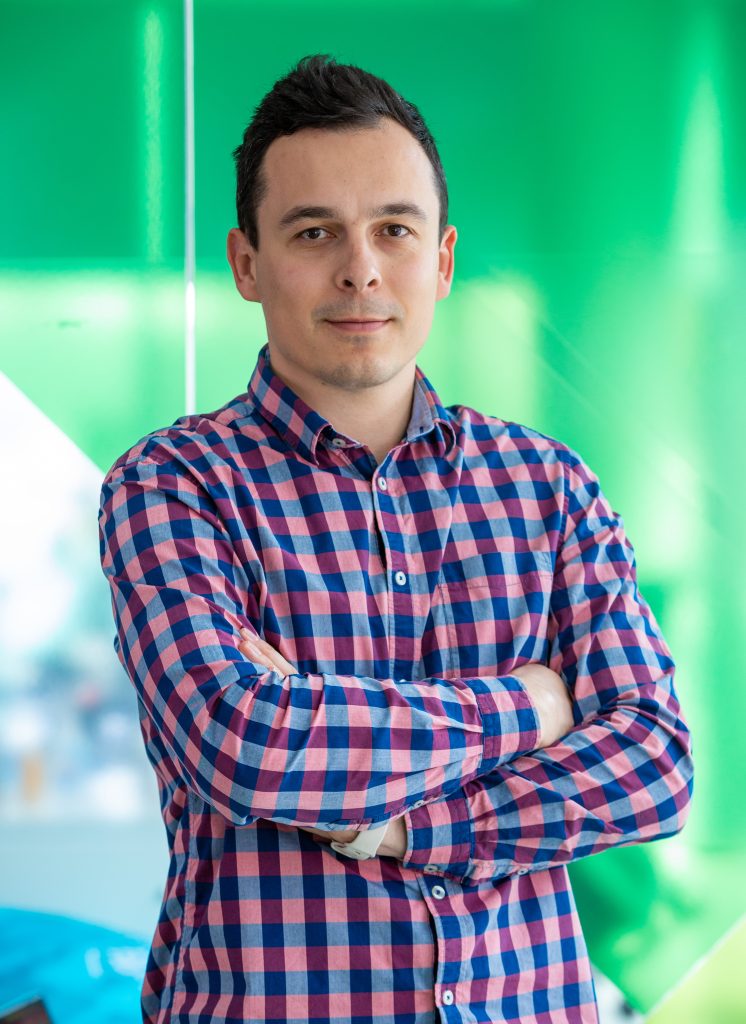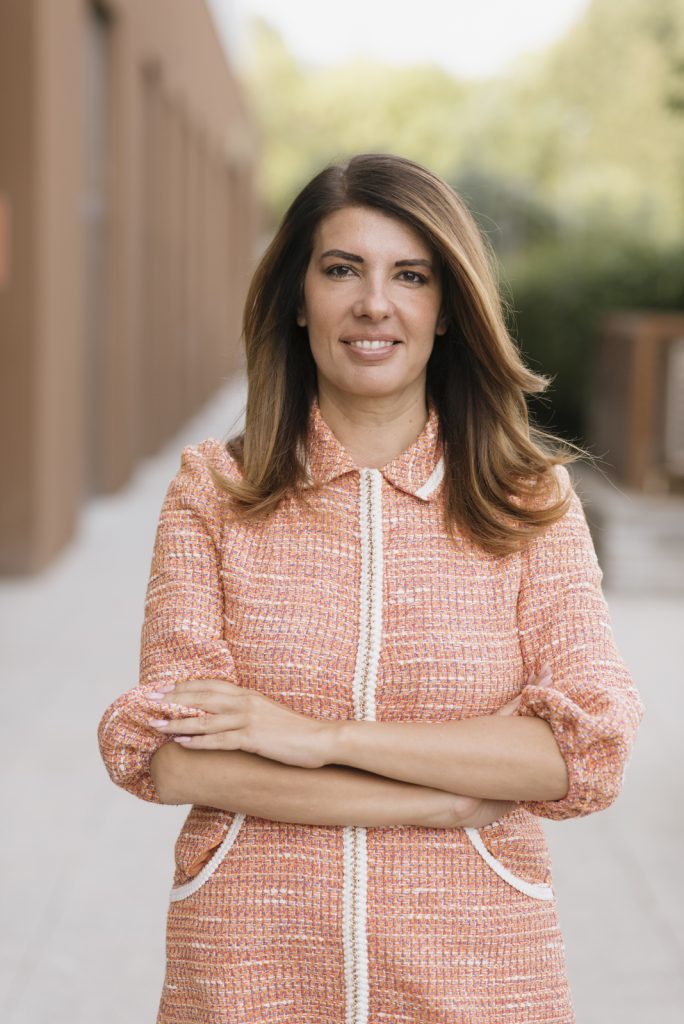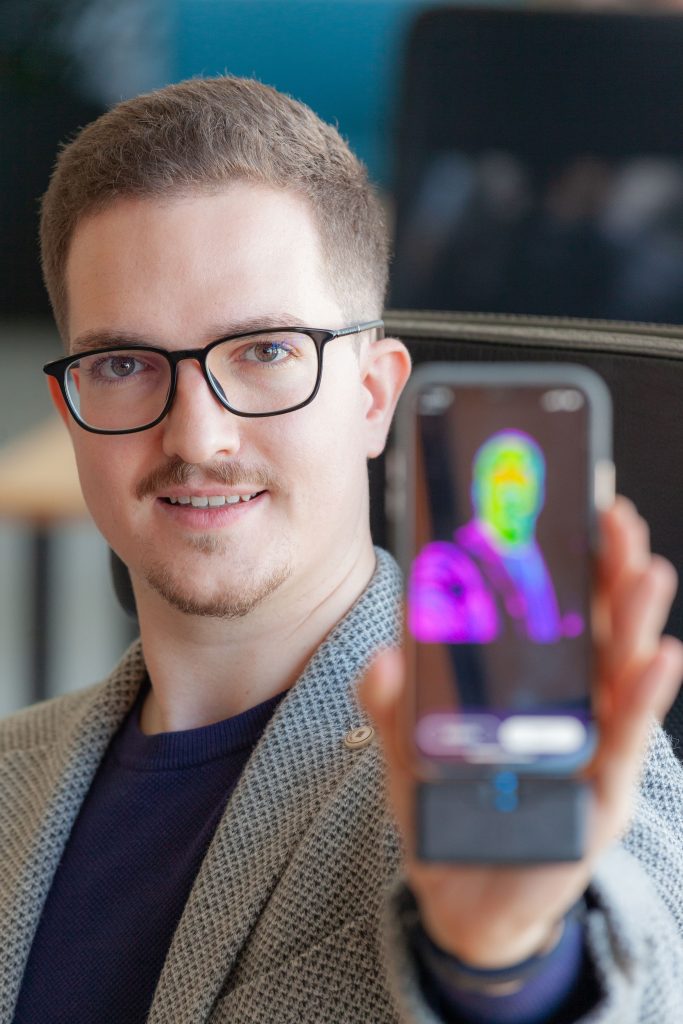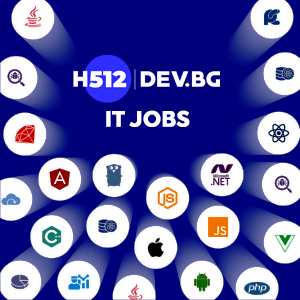More and more often, IT specialists are also reviewing healthtech companies’ ads on H512.com’s job board because the sector is not as risky as fintech, for example, and is one of the few where the investment environment has remained positive. According to a Silicon Valley Bank report, M&A volume has increased significantly in 2023 and this trend is expected to continue, with venture capital funding of private healthtech companies reaching $8.2 billion in 2022 after a lull, $530 million of which is in organizations focused on women’s health.
Every day, technology solutions are emerging to improve various aspects of the healthcare system – remotely diagnosing disease conditions, boosting hospital productivity, analyzing and certifying new drugs, performing complex surgical operations with robots… The list is endless, and some of the key global trends in the healthtech sector are being driven by Bulgarian players who share what their role is in them.
Affordable clinical trials for everyone everywhere
In Bulgaria, the largest number of healthtech companies (36%) were born between 2015 and 2019, according to data from the BULGARIA: HealthTech Mapping Report 2021 by consultancy PrEXCELerator. It includes 74 home-grown organisations based in Sofia (74.3%), Stara Zagora, Kazanlak, Plovdiv, Varna, Burgas, Ruse and Pleven, and one of the companies created in the pre-pandemic period is FindMeCure.
The healthtech startup was founded by Maya Zlatanova, Ivaylo Yosifov and Miroslav Valchev in 2017 after they faced a real life problem, namely, not having access to specific clinical tests to help a relative with an incurable disease at the time. Thus was born their first product, the FindMeCure platform, which helps patients find and enroll in clinical trials that are right for them. Next came TrialHub, software aimed at professionals planning to conduct one. In early 2023, the company attracted a second major investment in a Seed round that allowed it to offer an even faster service:
“The round combined with the explosion in generative AI has helped us take TrialHub to a whole new level and even leapfrog a few steps. TrialHub improves clinical trial planning, and until recently we were saving users a huge chunk of time spent searching for information across clinical registries, publications, and more. We now have our own trained models and algorithms, and with the help of Open AI and the information we structure for our clients, we now answer 95% of trial planning questions within 30 seconds,” says Miroslav Valchev.

Shortening the time to find the right information is key, given that the volume of clinical trials has grown exponentially in the last few years – while in 2000 there were 2,119 registered trials worldwide, by the end of May 2023 the number had reached nearly 454,000. This has motivated Miroslav’s team to make them even more accessible to patients and all healthcare professionals using their platforms:
“TrialHub and FindMeCure are two approaches to a single goal – to bring clinical trials closer to patients and enable more and more people to participate, gaining access to innovative treatments years before they reach the market. In 2024, TrialHub will evolve to answer even more questions related to patients themselves. Our goal is to help trial planners have a full understanding of the target patients, which unfortunately hasn’t happened so far for a number of reasons,” Miroslav elaborates, adding that the FindMeCure platform will also be “injected” with a dose of generative AI enhancements – not because it’s trendy, but because it will allow them to implement more ideas to help patients and healthcare experts around the world.
Data sets in the fight against cancer
According to the same PrEXCELerator report, in 2021, 15% of domestic healthtech solutions used AI, and 5.7% worked with big data and predictive analytics.

The technology boom over the past two years and the ever-growing data sets also have a direct impact on whether a patient will receive a correct diagnosis and adequate treatment. This data is available in hospital information systems, and very often it is unstructured in the form of free text,” says Desislava Mihailova, Founder and General Manager of Sqilline.
The company was established in 2009 and offers solutions for processing, structuring and analysing data sets for the healthcare and pharmaceutical sectors. One of these solutions is Danny Platform, a software for detailed searches, analyses, predictions and possible treatments. Through Danny Platform, it is also possible to quickly view active trials in a given country, whose inclusion and exclusion criteria can be automatically mapped to patients at the relevant facility, further speeding up the process.”
Danny Platform currently processes more than 1.2 million patient records in Central and Eastern Europe, storing and analysing valuable data that helps treat a range of serious diseases such as cancer. It enables leading oncology researchers to discover and link previously unknown correlations between patients’ symptoms and an accurate diagnosis, between a person’s genome and the best therapy for the patient. At any given moment, the treating physician can track in real time the research and the effect of the treatment performed for any particular patient. All this allows informed clinical decision-making and is a practical application of the personalised approach in medicine, which is particularly important in the treatment of patients with cancer,” adds Desislava Mihailova.
Solutions to help healthcare practitioners
While some Bulgarian companies are paving the way for personalised medicine, others like BGO Software are helping practitioners technologically. The company was established in 2008, has offices in Sofia, Plovdiv and Vratsa and is a trusted partner of the British NHS Health Insurance Fund as well as many healthcare institutions in Europe and the USA.
“In recent years, the digitalisation of healthcare has accelerated worldwide. The main reason is the pandemic, when the need to be digitally connected and connected to doctors was clearly felt and this did not hinder successful treatment. Telemedicine, of course, is only a small part of the so-called digital health sector. A holistic approach is needed for patients to truly understand the benefits of digitalization,” says Ivan Lekushev, CEO of BGO Software.

Precisely because of the need for a holistic approach to problems in the sector, for years the company has been an active member of the Bulgarian Cluster for Digital Solutions and Innovations in Healthcare to help institutions implement digitalization normatively and strategically, as well as to build a full-fledged ecosystem that brings many and real benefits to patients.
“We hope that very soon digital solutions will be at the heart of disease prevention and we can talk about health promotion rather than curing patients. This is also our mission,” adds Ivan Lekushev.
A concrete example is their partnership with JONM (Joint Oncology National Network). “Medical information is nowadays updated literally every day and it is extremely laborious for a practitioner to collect and analyze this information in an unstructured form. Our solution facilitates the process as well as helps physicians to communicate and exchange scientific information efficiently.”
In addition, BGO Software are also developing a manufacturing control program for one of the largest global pharmaceutical companies to ensure the safety of drug products. “It’s amazing how one click from Bulgaria helps millions of people around the world,” says Ivan Lekushev, while the company is also making considerable efforts to make the Bulgarian patient feel the benefits of healthtech medicine.
Diagnosis a selfie away
On 2 April 2020, Bulgarian company Imagga, which has been “deciphering” visual content through a programming interface since 2012, broke the news that it was joining the fight against COVID-19 with the Kelvin Health technology solution for diagnosing diseases through AI and thermal camera photos. Georgi Kostadinov, co-founder and CTO of the company, shares how it works, “Applying advanced computer vision algorithms and mobile thermography technologies, Kelvin turns a phone with a thermal camera into a powerful device for monitoring human health. The system analyzes the body’s thermodynamics to detect anomalies or significant thermal differences, which are often major markers of various health problems.”

Because the solution’s focus is on early detection of conditions such as peripheral arterial disease and critical limb ischemia – conditions that lead to impaired circulation caused by clogged arteries and blood vessels, the AI system segments the body’s thermograms into arterial zones and analyzes the risk of these diseases in each. Diagnosis is accurate and fast, thanks to specialized computer vision algorithms trained with thermal and clinical data.
George adds that the innovation of their solution lies in its accessibility and efficiency because, compared to traditional diagnostic methods such as angiography, the diagnostic time is reduced by nearly 30 times, while ensuring a harmless, non-invasive and non-contact method of examination. All this makes it suitable not only for professionals, but also for anyone with a smartphone: “Imagine being able to conduct an automated health check in the bathroom every morning, receiving instant feedback on whether you need medical attention. Kelvin Health turns what seems like science fiction into reality, making preventive health care accessible through a device as common as a smartphone.”

With 92 million new selfies appearing in the world every day, we can only imagine how many of them could prove life-saving with Kelvin Health’s Bulgarian technology. But as the healthcare sector is one of the most conservative and regulated, the question arises as to how close this reality is to patients: “After over three years of active research and development, two of which focused on precision non-invasive diagnostics of vascular pathology, Kelvin Health will begin formal clinical trials in this area both to obtain CE mark for a medical device in Europe and before the US Food and Drug Administration FDA,” replies Georgi Kadrev, co-founder and CEO.
As these are long and arduous processes, it is likely that they will receive a CE mark in late 2024, allowing vascular specialists in Europe to formally use the solution in vascular diagnostics. In the meantime, the company is in active talks about partnerships with various vascular clinics in the U.S. and about membership in the innovation network of the country’s largest cardiovascular association, as well as considering the possibility of a physical presence there. “Healthcare processes are much slower than those in information technology, but our strong belief in the utility of the end solution continues to drive us forward toward the goal of providing higher quality patient care based on early precision non-invasive and potentially remote diagnostics,” dopp
So in the global story of digital healthcare transformation, we will add the healthtech click of the phone to the healthtech click of the mouse as these and more Bulgarian companies continue to pave the way to ever more affordable, faster and safer healthcare services.


 Publish date: 11 December, 2023
Publish date: 11 December, 2023


 Hybrid
Hybrid